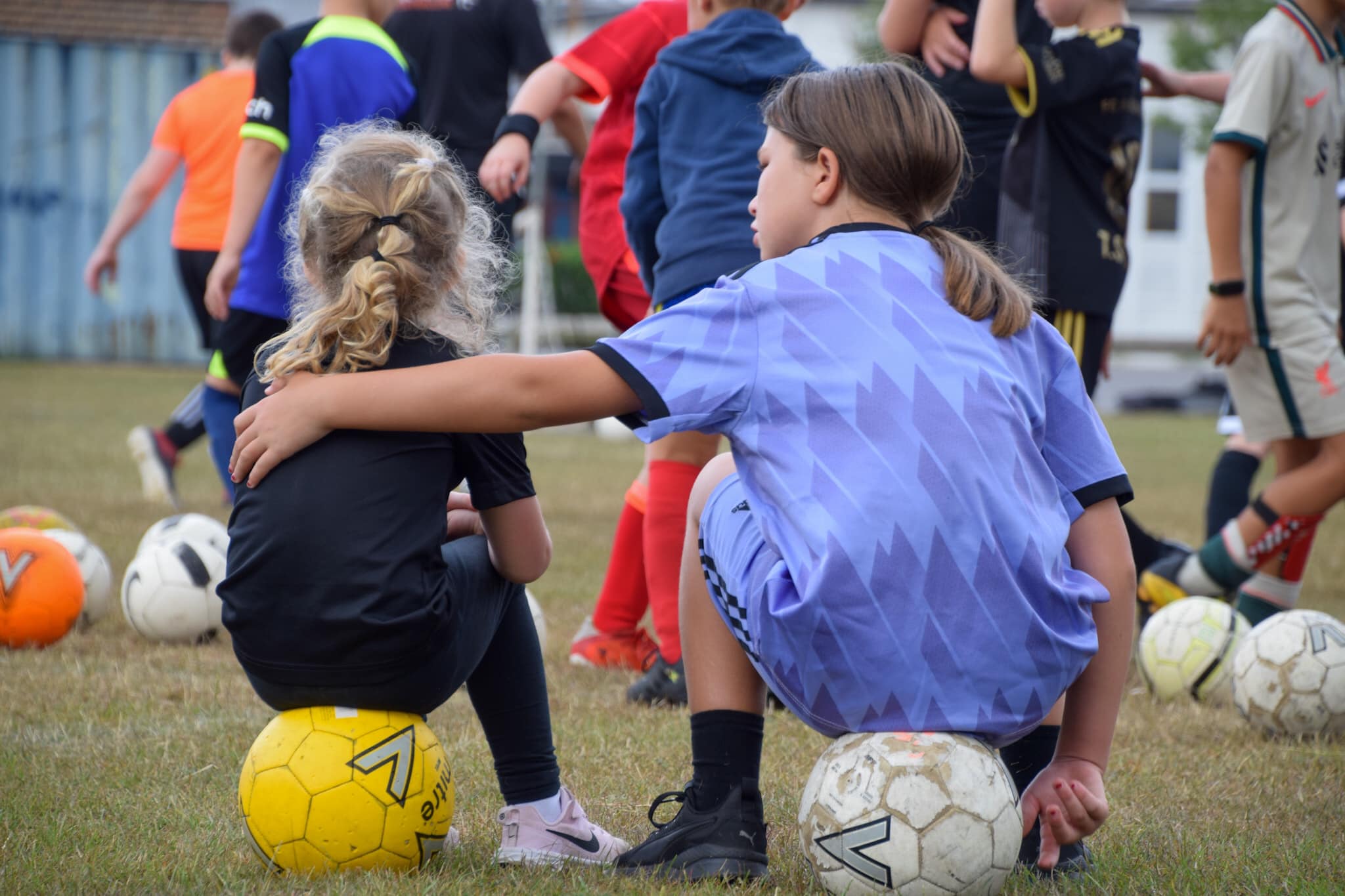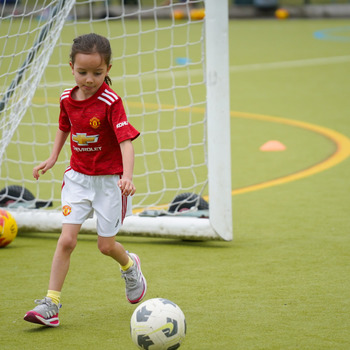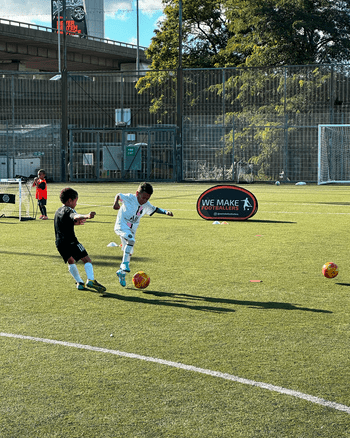The summer holidays and school breaks present an excellent opportunity for children to rest, relax and recover from their education. They play an important part in the learning process as everybody – even kids – need a break from the rigours of the daily routine.
Sometimes though, that downtime can have an adverse impact on children. This is particularly true during the summer break, when there are six weeks without the structure of the school day to negotiate. What happens over those 30 days outside the classroom can have a lasting impact on a child’s development.
Take computer games, the internet and social media for example. The world and his wife know that kids sitting in front of screens for hours on end is not good for them. From a mental point of view, increased use of social media has been linked to mental health problems and too much screen time impacts on the development of the brain.
From a physical point of view, children need to stay active to maintain and improve their cardiovascular fitness and the health of their bones. A lack of physical activity can lead to weight gain, a reduction in the quality of sleep and a loss of coordination and balance skills.
A child who spends most of their school breaks and summer holidays on the internet or playing computer games is therefore at risk of damaging both their mental and physical wellbeing. That is why the importance of staying active over these periods cannot be overstated.
Partaking in physical activity impacts on mental health, too. Exercise leads the brain to release feel-good endorphins which combat stress and help lift depression. This is known as runners high, for the rush that people experience in the aftermath of even a short jog around the block.
Children in the 21st century are more susceptible to issues such as stress and depression; many believe because of the internet and the world of social media. And that was before the pandemic arrived and wreaked havoc on the mental health of the entire nation through lockdowns – according to a University of Cambridge study, the first lockdown between March and July 7 2020 led to a significant increase in symptoms of depression amongst children.
With the known link between exercise and improved mental health, keeping children physically active is a great way to keep them happy and healthy over school breaks and the summer holidays.
The minimum recommended amount of physical activity that a child should partake in is one hour per day for five days of the week, according to the NHS. Three types of activity should be included; moderate activity, vigorous activity and muscle and bone strengthening activity.
Moderate activity raises the heartbeat and causes a sweat but the participant can still hold a conversation whilst doing it. Vigorous activity significantly increases the heartbeat and causes breathlessness. One hour of vigorous activity is worth two hours of moderate, so it is in effect double the effort for double the benefits.
Muscle and bone strengthening involve using parts of the body that are rarely used in everyday tasks such as walking to school or when out on a run. When arm, back or leg muscles not normally stretched and exercised are put through their paces, it regulates blood sugar and blood pressure.
In kids, muscle and bone strengthening exercises are particularly important. The human body is growing and changing constantly until adulthood is reached, so activities that involve the whole body help a child grow up to be strong and healthy.
The best way to ensure that a child gets all three exercise types is via a sport which encompasses them. Arguably the most accessible of these is football, where moderate jogging is mixed with vigorous running. Kicking a ball with every part of both feet involves using different muscles and bones in the lower leg, upper leg and back.

When a child partakes in organised school break and summer holiday football sessions led by qualified coaches at We Make Footballers, they are getting all the physical activity they need to stay happy and healthy over the course of their time off from school.
There is though a balance to be struck between too little physical activity and too much physical activity. Being idle throughout summer holidays and school breaks brings with it the risk of all those problems already mentioned. Being too active brings the risk of injuries and burnout, bout of which can also be detrimental to a child’s development.
It is therefore important to ensure that a child is not putting too greater toll on their young body. Managing a kid’s workload is easier said than done of course – they are not elite Premier League footballers after all whose routines is managed down to the final microdetail.
Putting a child’s physical activity in the hands of expert coaches at We Make Footballers means that they are getting the correct amount of physical activity. Those planning and running sessions know how much exercise a child can handle and every day is structured accordingly.
Aside from health, school breaks and summer holidays can impact on children in another major way that does not get talked about much. Going to school everyday gets kids into routines and promotes good habits.
They know that they will be leaving the house at a certain time, having lunch at a certain time and coming home at a certain time. They know that a number of hours will be dedicated to learning and they also know that teachers will keep them in check, meaning that they maintain good behaviour and habits.
Six weeks without the structure of school can lead to kids forgetting what routine is like. Once that slips, it can take some time to get back into it. It is surprisingly how quickly good habits can slip too; in the summer, any bad habits that become ingrained will be taken into the classroom once school resumes.
Football over the summer can replace the routine of school. Even for one or two weeks out of six, it breaks up the possibility of a child going a month-and-a-half with no structure to their daily routine.
As a sport, football promotes good habits. Children have to listen to the coach, work hard and get on with their fellow players for the good of the team. After all, football coaches are essentially teachers.
In the mid-90s, Harris Cooper of the University of Missouri published a study which showed that without brain-stimulating activity through the summer holidays, children lost on average a month’s worth of learning.
The National Summer Learning Association says losses occur mainly because parents are not aware of the concept of summer learning loss. They do not know that if their children’s brains are not stimulated suitably over the summer, then they can experience a loss of knowledge to the point where teachers often have to spend the first few weeks of the new school year in September re-teaching forgotten material.
When playing football, children’s brains are stimulated. They are thinking, they are active and they are learning. Spending part of their summer at a We Make Footballers academy can help their cognitive development as well as being good fun.
It can be difficult during summer holidays and school breaks to ensure that children are getting the correct amount of physical activity and not slipping into bad habits. We Make Footballers can take that responsibility away from parents by providing football coaching in a safe and fun environment.
We Make Footballers are running weekly football holiday camps for 4-12 year olds of all abilities across London and the south east. Camps run between 9.30am and 3.30pm and all camps are Covid compliant.



